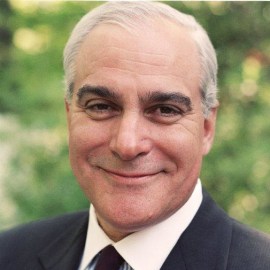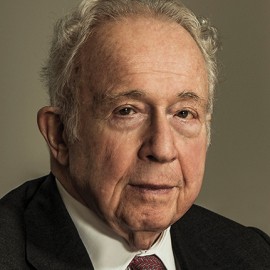Robert H. Rock, Chairman, MLR Media
David Shaw and Eve Tahmincioglu: Directors & Boards, How the Forum Will Work
Noah Gottdiener, CEO, Duff & Phelps
Interview with Indra Nooyi, former CEO and Chair of PepsiCo, current Amazon board member. Moderated by Noah Gottdiener, Duff & Phelps
There is an intensifying drumbeat for companies to consider more than just profits and focus on social good. But that encompasses so many constituencies and so many needs within and outside of organizations. We set out to define social purpose and consider how far directors should and can go in serving all stakeholders, beyond just shareholders.
Takeaways:
- What does the “S” in ESG mean?
- Defining and balancing shareholder and stakeholder needs and desires
- What is the corporation’s role in social justice, diversity, equality, inclusion and income inequality?
- What time frame should be the focus?
- Strategies on addressing the decline of gain-sharing between employees and management
- Should the board ultimately be accountable for ESG and measured and compensated on ESG performance?
Human capital management is a key part of ESG imperatives. Adopting principles under this umbrella is seen as a way to attract and retain the best talent. But how do employees really fit into ESG initiatives? Should boards track job creation and satisfaction? What’s the company’s responsibility to older workers who might be displaced by technology? What responsibility does a company have for income inequality?
Takeaways:
- Is it the responsibility of the corporation to provide good jobs?
- What are the payoffs of focusing on ESG initiatives throughout organizations?
- How should a board define and promote diversity and inclusion?
- Should employees (not just senior management) be represented on the board?
Keynote Interview with Marty Lipton, Founding Partner Wachtell, Lipton, Rosen & Katz
The “New Paradigm” conceives of corporate governance as a voluntary collaboration among corporations, shareholders and other stakeholders to achieve sustainable long-term value and resist short-termism. It provides a roadmap for boards to demonstrate that they are providing thoughtful, engaged oversight and that management is diligently pursuing credible, long-term business strategies.
Takeaways:
- Strategies for adopting long-term thinking
- Reality check on what can be done by directors now
- Guidelines on what investors really want
Do we need fundamental change in how corporations are regulated, to the corporate tax structure, or do we need new governance laws? What role is the government playing and should play in promoting ESG?
Takeaways:
- Can boards effectively focus on ESG without governmental help?
- Key issues on the minds of regulators, politicians
- Potential laws, regulations expected in the months and years ahead
- Insights on the role directors should be playing to encourage or thwart new regulations
If ESG initiatives are to be anything more than public relations, boards will need to consider whether and how CEO and senior management performance should be measured and compensated.
Takeaways
- TSR vs ESG
- What metrics should a board use? Is there a new EPS/TSR for ESG?
- How to make this reportable and effective
Takeaways:
- Investor priorities directors need to focus on
- Strategies for providing investors what they want but also focusing on ESG
- Should ESG reporting be standardized and mandated?
- Realistic advice and strategies to bolster long-term thinking
Table Groups topics:
Defining ESG and The Corporation’s Role
Compensation and ESG
Human Capital and ESG
Government Requirements
Institutional Investor Requirements
ESG Reporting






















